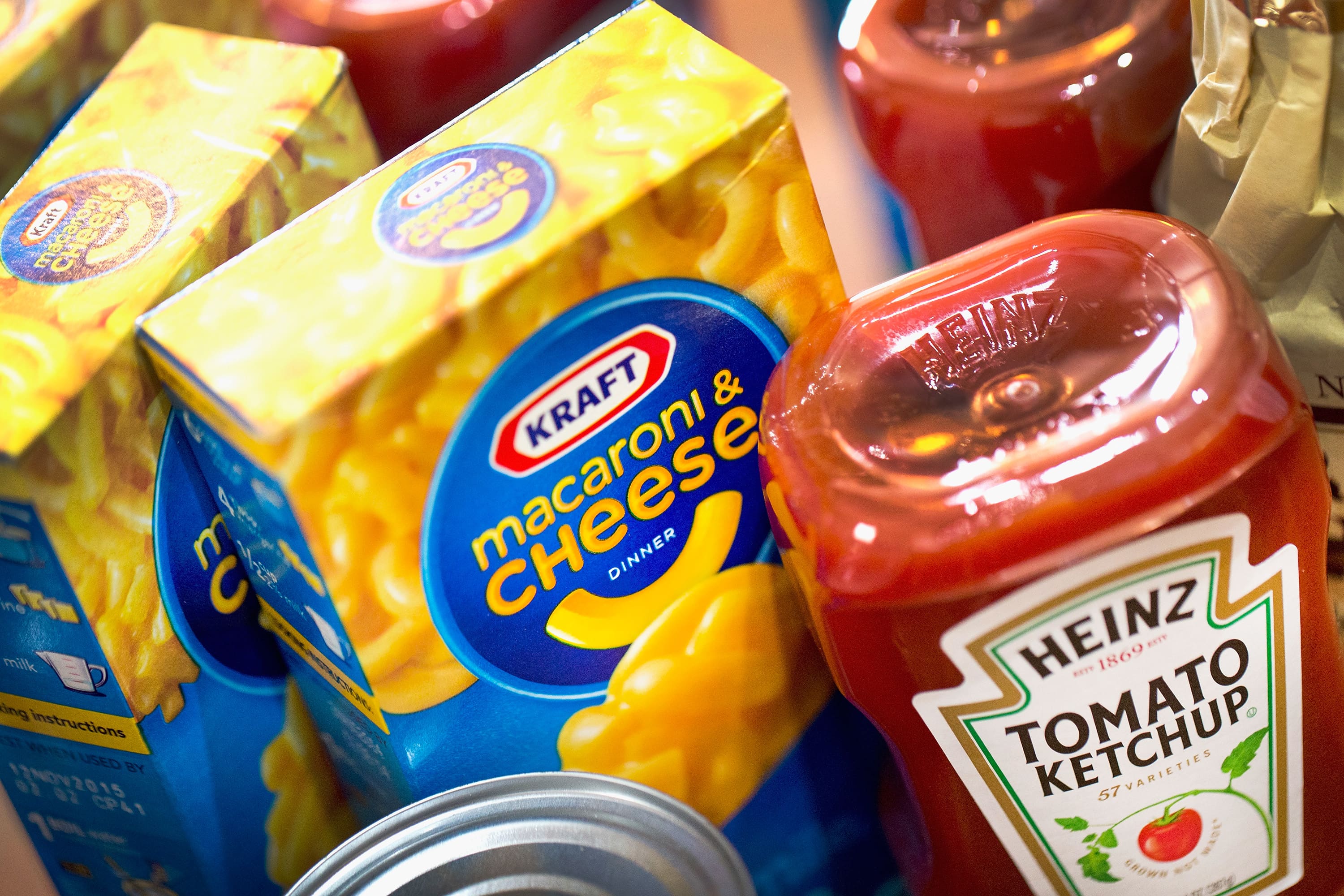
Kraft Heinz is scheduled to present its new strategy for the company on Tuesday morning to investors, who are looking to hear more details on coming innovation and cost savings and any hints about plans to further downsize its portfolio of iconic brands.
In recent years, Kraft Heinz has struggled as consumers shopped more around the perimeter of the grocery store in search of fresh foods. The sales downturn led the food giant to report billions of dollars in write-downs on some of its brands, including Cool Whip, Oscar Mayer, Kraft and Maxwell House, and to reshuffle its leadership.
But stockpiling and other behavior changes related to the coronavirus pandemic have boosted Kraft Heinz's revenue in recent months and revived sales of some of its lagging brands. In both the first and second quarters this year, revenue rose more than 3%, marking the largest improvement to quarterly sales since 2016, when the impact of the previous year's mega-merger was first tallied. Analysts surveyed by Refinitiv are forecasting third-quarter revenue to rise 2.1% to $6.2 billion, although earnings are expected to fall to 56 cents, down nearly 20% from the same time a year ago.
The market reaction to Kraft Heinz's higher sales has been muted, even though the stock remains one of Warren Buffett's top five investments. Shares of the company, which has a market value of $38.8 billion, are down 1% so far this year.
"While many food companies have enjoyed meaningful multiple expansion related to COVID-19 restrictions and stock-up, KHC shares continue to trade at a 25% discount to packaged food peers and a 33% discount to consumer staples peers," Bank of America analyst Bryan Spillane wrote in a note to clients on Friday.
While the pandemic has lifted sales for Kraft Heinz and its fellow food companies, it has also pushed the U.S. economy into a recession, leaving millions of Americans without jobs. Penny-pinching consumers may be looking to cut costs by switching from name brands such as Jell-O and Planters to generic store brands.
"Given the categories in which KHC operates, some believe that private label is a more meaningful threat to KHC in the US than it is for other packaged food peers, which causes an existential threat to market shares and margins," wrote Spillane.
Analyst speculation about potential divestitures tends to focus on categories where private label brands present the biggest challenge. According to Spillane's research, private label brands have disrupted Kraft Heinz's cheese, meat and coffee businesses the most. UBS analyst Sean King found that Kool-Aid, Capri Sun, Ore-Ida and Maxwell House are among the Kraft Heinz brands trailing private label products in market share.
People familiar with the matter told CNBC that the company had put Maxwell House up for sale last year but encountered tepid interest from potential buyers. Kraft Heinz's coffee business took another hit after McDonald's switched its McCafe licensing partner from Kraft Heinz to Keurig Dr Pepper. The U.S. exit from McCafe coffee began in July, which will hit the company's earnings in the latter half of the year.
Wells Fargo analyst John Baumgartner also listed a sale of Kraft Heinz's "operationally challenged" Australia and New Zealand business, valued at $1.5 billion, as a possibility.
Beyond slimming down its portfolio, investors are also expecting to hear more about what categories and products it targets for innovation and investment. The pandemic has introduced new customers and brought others back, presenting new opportunities for Kraft Heinz.
"An important element of the strategy reveal next week, we expect, will focus on improvement KHC has made to its product and marketing programs," Spillane wrote. "This will likely include a look into how KHC is prioritizing category/country opportunities."
Carlos Abrams-Rivera, head of Kraft Heinz's U.S. business, said on the company's second-quarter earnings call that it will be focusing on "fewer, bigger innovation" and sharing more details during Tuesday's investor presentations.
The changes to its innovation strategy coincides with an overhaul of its marketing and advertising approach. In February, the company announced plans to cut its roster of advertising agencies in half but raise media spending by 30%. CEO Miguel Patricio, who joined the company more than a year ago, said in late July that it had recently hired new heads of marketing for its geographic zones.
Kraft Heinz has also brought on new leadership for its U.S. team, which manages the company's most important market. In mid-August, it named former J.M. Smucker executive Cory Onell as head of U.S. sales and former Mike's Hard Lemonade executive Sanjiv Gajiwala as U.S. chief growth officer.
"What" - Google News
September 14, 2020 at 10:20PM
https://ift.tt/32tXvO4
Here's what to expect from Kraft Heinz's investor meeting - CNBC
"What" - Google News
https://ift.tt/3aVokM1
https://ift.tt/2Wij67R
Bagikan Berita Ini














0 Response to "Here's what to expect from Kraft Heinz's investor meeting - CNBC"
Post a Comment